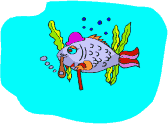 |
See Zeiner's new online
catalog. New items are being added regularly. |
Click here for Zeiners new secure online catalog
Submitted by Ned Kehde - July 29, 2002
Meteorologists reported that the past winter was the warmest
on record.
Yet for a long spell after the March equinox, spring's arrival
was
continually forestalled by winter's steadfastness. Then once
winter
reluctantly released its grasp, spring was upon us in a rush.
Spring attempted to make amends for its tardy appearance by
orchestrating a heat wave, which sent area thermometers to summerlike
readings and quickly faded the redbuds and plums thickets that
graced the
reservoirs' riparian borders. Water temperatures rose rapidly
and fish by
the thousands invaded the shorelines of area lakes.
This heat also propelled massive hatches of mayflies and other
aquatic
insects at the reservoirs, and the fish that gamboled along the
reservoirs'
rocky and shallow shorelines feasted upon the larvae as they
ascended to the
surface to hatch.
Likewise, fishermen who were afloat during these hatches and
probing
the right shoreline with the correct lures and presentations
enjoyed
bountiful catches of crappie, channel catfish, drum, largemouth
bass,
sauger, smallmouth bass, spotted bass, walleye, white bass and
wipers.
Spring's bounty can be grand. But at times anglers can become
tormented
and even bedraggled by the radical and constant fluctuations
of the weather.
A mere shift in the angle and speed of the wind has been known
to send
anglers from Avalon to absolute despair.
And often this spring the wind howled, surpassing 30 mph and
sending some
anglers from the big reservoirs to the safe and fishable harbors
of Lone
Star Lake.
Eventually, the drought broke, and by the 40th day of spring,
Lawrence's
total precipitation surpassed normal levels. These rains filled
and riled
some of the reservoirs, fouling some folks' piscatorial pursuits.
Moreover, there was a run in late April and early May when
the weather
turned windy, cold and damp. For instance, thermometers hover
at 41 degrees
at daybreak on May 2 and by noon they struggled to reach 52 degrees.
The
cold struck again on May 9. And these days of unseasonably cool
weather
forced the diehard anglers to don some pieces of their winter
garb again.
Despite these vicissitudes, several area fishermen caught
fish galore.
During the first two weeks of spring, some species exhibited
a
preference for a delicately twitched Smithwick Rogue or a Lucky
Craft
Pointer. On windy days or calm ones, cloudy or clear, warm or
cold, these
lures inveigled lots of big largemouth bass, spotted bass and
smallmouth
bass on shallow rocky points and shorelines of Melvern and Lone
Star lakes.
For instance, Steve Ortiz of Lawrence and two friends caught
and released 17
smallmouth, largemouth and spotted bass that weighed more than
60 pounds at
Melvern. And on another Melvern outing, a Rogue lured a five-pound,
six-ounce smallmouth.
After the Rogue and Pointer's effectiveness waned, anglers
switched to a
lightweight jighead adorned with either a three-inch tube or
twister-tailed
grub. These lures were affixed to a spinning outfit spooled with
eight-pound
line.
At Coffey County, Lone Star, Melvern, and Pomona lakes, anglers
wielded
these two lures along many miles of rocky shorelines by casting
them to the
water's edge and slowly retrieving them back to the boat. On
occasions the
fish wanted the anglers to stop the retrieve for a second and
give the lure
a subtly twitch. At other times, especially when the wind was
brisk and
exceeding 15 mph, the best tactic was to work the lure at a steady
pace as
the wind pushed the boat along the shoreline.
Even during the windiest and most unsettled weather conditions,
the tube
and grub enticed an incredible number and variety of species.
Here's an abridged list of what several area anglers caught
by using a
tube and grub during the first 62 days of spring:
Alan Geiss of Lawrence and a friend caught and released 5l
white bass and
27 wipers at Pomona on April 13; the biggest weighed five pounds.
On an exceedingly windy April day Bob Laskey and a friend
caught and
released 66 largemouth bass and 33 crappie at Lone Star. Ten
of the bass
weighed a total of 30 pounds and all of the crappie measured
over 10 inches
in length. Two days later the wind continued to howl, and Dick
Bessey of
Shawnee and a friend caught 44 bass and scads of crappie at Lone
Star. The
biggest bass weighed six pounds, 11 ounces.
Four days later the wind blew at only 16 mph, allowing Bessey
and his
friend to venture to Melvern, where they tangled with 32 smallmouth.
The
biggest weighed four pounds, 11 ounces.
Several days after Bessey's catch, Marc Sherrell of Overland
Park and a
friend caught 125 fish and seven different species at Melvern.
On the day Coffey County reopened, Walt Tegtmeier of Kansas
City, Mo., and
a friend caught 89 smallmouth, 11 walleye, 10 big crappie, two
channel
catfish, two largemouth, one drum and one white bass. And on
the next day
the wind roared, but that didn't stymie Cameron Roth of Lawrence
and two of
his friends; they caught and released a potpourri of species,
totaling 175
fish.
Since all of these catches occurred before the bulk of the
crappie and
channel cats invaded the rocky shorelines, anglers speculate
that the tube
and grub will remain effective for another three weeks.
Back to
Ned Kehde Index | Kansas
Angler Home | Anglers Sharing Stories
|


